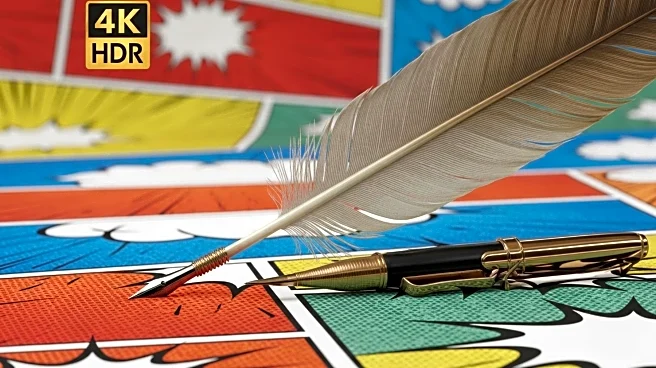What is the story about?
What's Happening?
DC Comics President Jim Lee has announced that the company will not utilize Generative AI for storytelling or artwork. Speaking at the New York Comic Con, Lee assured fans that as long as he and Senior Vice President and General Manager Anne De Pies are in charge, DC Comics will maintain its commitment to human-created art. Lee emphasized the unique value of human creativity, noting that the imperfections and personal touch in hand-drawn art cannot be replicated by AI. He highlighted the importance of the human element in the creative process, which he believes is essential to the authenticity and emotional impact of comic art.
Why It's Important?
The decision by DC Comics to reject Generative AI reflects broader concerns within the arts community about the impact of AI on creative industries. By prioritizing human artistry, DC Comics is positioning itself as a defender of traditional creative processes, which could influence other companies in the industry. This stance may resonate with artists and fans who value the personal and emotional connection inherent in human-created art. The move could also affect the future of AI integration in creative fields, potentially slowing its adoption in areas where human creativity is deemed irreplaceable.
What's Next?
As DC Comics continues to uphold its commitment to human-created art, the company may face pressure from industry trends that increasingly incorporate AI technologies. However, Lee's firm stance suggests that DC Comics will continue to prioritize traditional artistry. This decision may lead to discussions within the industry about the role of AI in creative processes and could inspire other companies to evaluate their own use of AI. Fans and artists may also engage in dialogue about the value of human creativity versus AI-generated content.
Beyond the Headlines
DC Comics' decision not to use Generative AI raises ethical questions about the role of technology in creative fields. The company's stance highlights the ongoing debate about the balance between technological advancement and the preservation of human artistry. This decision may contribute to a broader cultural conversation about the importance of maintaining human involvement in creative processes, potentially influencing public perception and policy regarding AI in the arts.
















